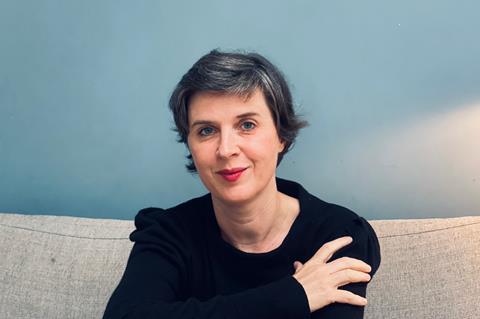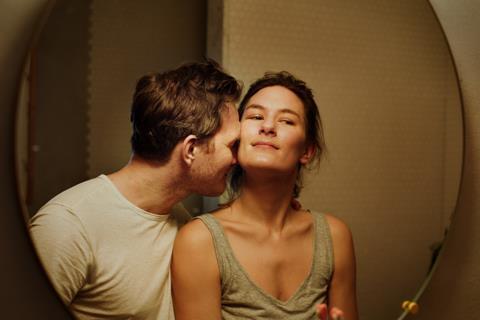
A graduate of both the London Film School and the Film and Television School of Performing Arts in Prague (FAMU), Norwegian director Lilja Ingolfsdottir has helmed over 20 shorts. Now the writer-director makes her feature film debut with Loveable, which premieres this week as part of Karlovy Vary’s Crystal Globe competition.
Loveable follows the fortunes of a 40-year-old woman, played by Helga Guren, whose world is turned upside down when her husband (Oddgeir Thune) asks for a divorce.
The Norwegian film is produced by Thomas Robsham, the producer of films such as Louder Than Bombs and The Worst Person In The World, for Denmark’s Nordisk Film Production and Norway’s Amarcord. International sales are being handled by TrustNordisk.
The ‘divorce’ narrative is a common one but in Loveable you approach it from different way. What did you set out to do?
I wanted to challenge the pop culture beliefs we have of love between two people in modern society. We are told that if we only find the right one we will be free of our problems and finally find peace. I wanted to explore the deeper material in a marital crisis. What does it really consist of? Why do we have these high numbers of divorced couples in today’s society?
It was of absolute importance to portray the characters as complex human beings with a certain degree of ambiguity. I wanted to challenge this narrative of break-ups being a victim-perpetrator situation where one character is bad and the other good. I wanted to explore the dynamics between two grown up people in a realistic way. I wanted the audience to sympathise with both, even if the perspective of the film is mainly hers. Modern relationships are hard.
I wanted the audience to feel them both in their struggle. In the film, perspectives shift and one realises that the narrative is not really what you thought it was. Both the characters are carriers of their own childhood traumas which obviously influences their intimate relationship with each other.
How did Helga Guren become involved with the film and why did you want to cast her?
I spotted Helga in a short film many years ago. I immediately fell for her strong presence and authenticity on screen. She has this strong, naturalistic way of communicating and ability to reveal a wide range of emotional nuances. We agreed on doing the film together but financing the film took time. In the meantime we made a short called What We Fear based on some of the scenes in the feature script. A few years later we finally got the finances in place, but by then my relationship to the material had changed. I had to do some rewriting and reconsider every aspect of the film which included recasting. After sessions with Helga, I was once again convinced no-one could do this part the way she could. Helga is an extraordinary artist and is capable of moving from this strong, outgoing energy, with anger and latitude to the most vulnerable and transparent places.

Tell us more about the aesthetic of the film.
In many aspects of the film, there’s a dialogue between the realistic and the poetic, the authentic and the stylistic. I spent quite some time searching for the right locations. I wanted to film in real homes, places where people actually where living. Where you could see traces of lived life. I wanted to capture that vibration of life in the film and I think it adds a feeling of time, history and realism.
On the other hand, I wanted the film to have certain cinematic qualities and precision in the way it was framed and orchestrated, and I knew I was in safe hands when working with my husband Øystein Mamen, the cinematographer. Øystein is a very talented artist who can find poetic images where you never thought there were any.
We also shot the film mainly on a 50mm, which gave us the right natural spatial consistency and the distance/closeness we wanted for this narrative.
How did you bring the film to the big screen?
The process was quite long and tiring, not speaking of the years before this project, where I had to cancel three feature film projects due to lack of financing. I had been quite accustomed to getting turned down in the system and didn´t have much hope for this project.
Thomas Robsahm, my wonderful producer, on the other hand loved the project from the very start and was totally optimistic. After a few years with loads of rejections, I gave up and started working on a smaller project I could film with almost no financing. My producer wouldn´t let go of the potential he saw in the project and refused to give it up. With his stamina and hard work, he managed to pull it through! Today I am so deeply grateful to him for that.
What is next for you?
I am interested in continuing my exploration of the female and power of womanhood. The relationship between mother and daughters interest me. The last years I have been contemplating inherited shame in women and the struggle to become male in an attempt to feel empowered. I think one of my next projects can be a deeper exploration of womanhood - maybe a contribution to reconnect to and restore the female power in modern society.

























No comments yet